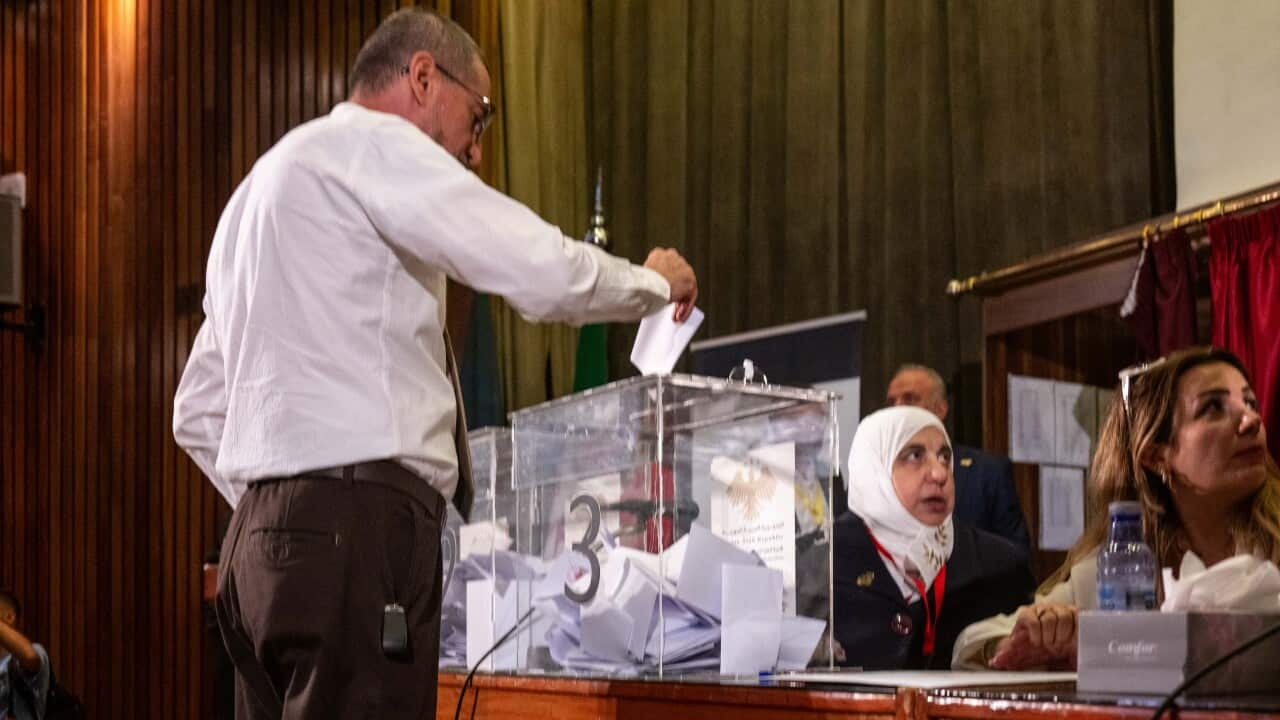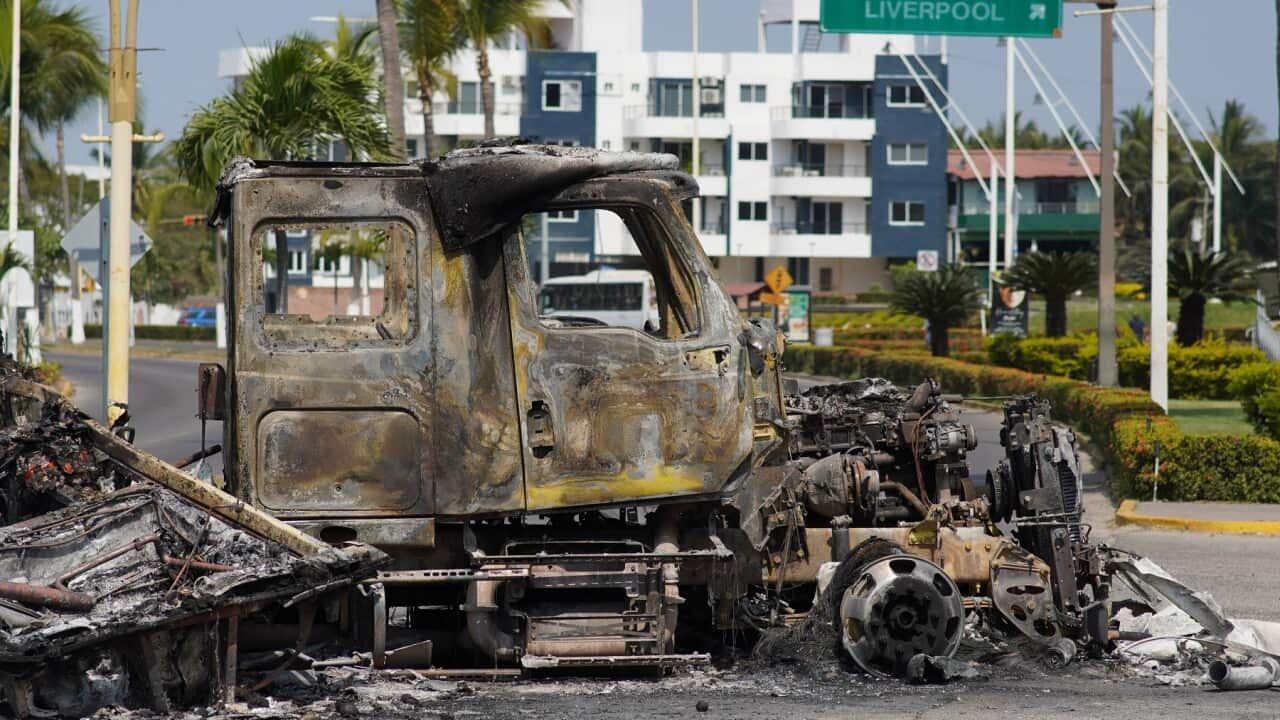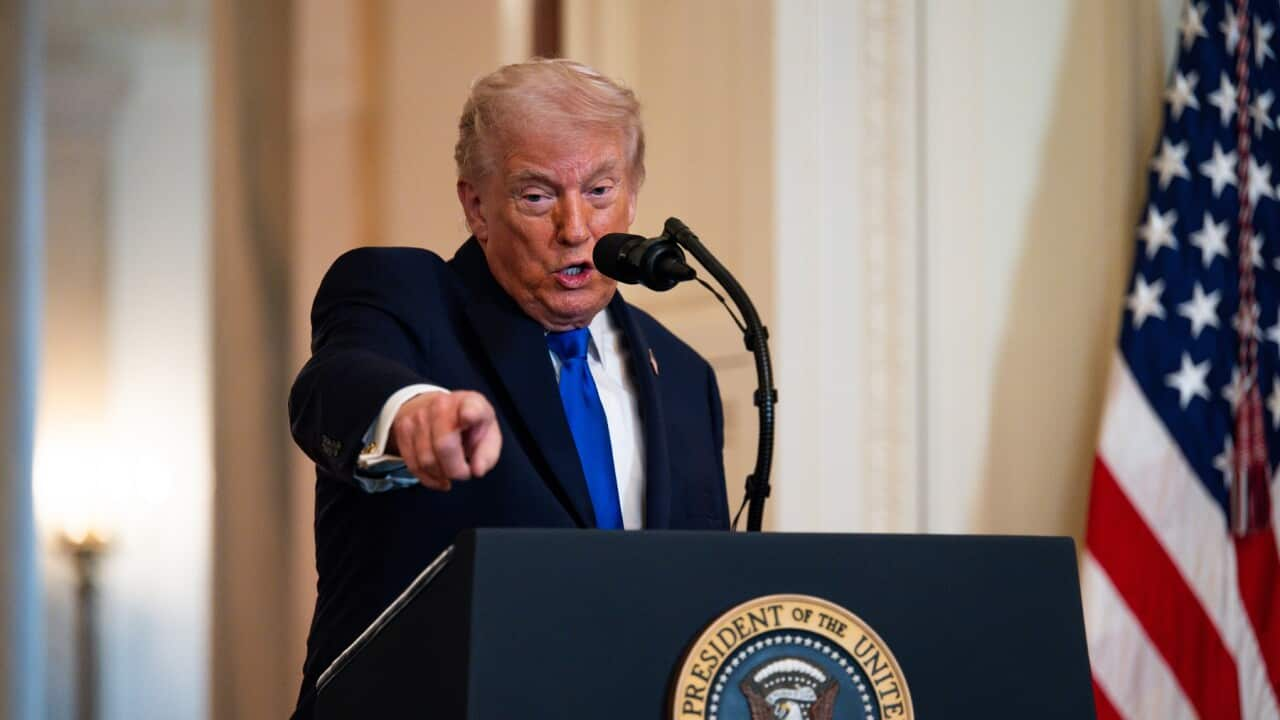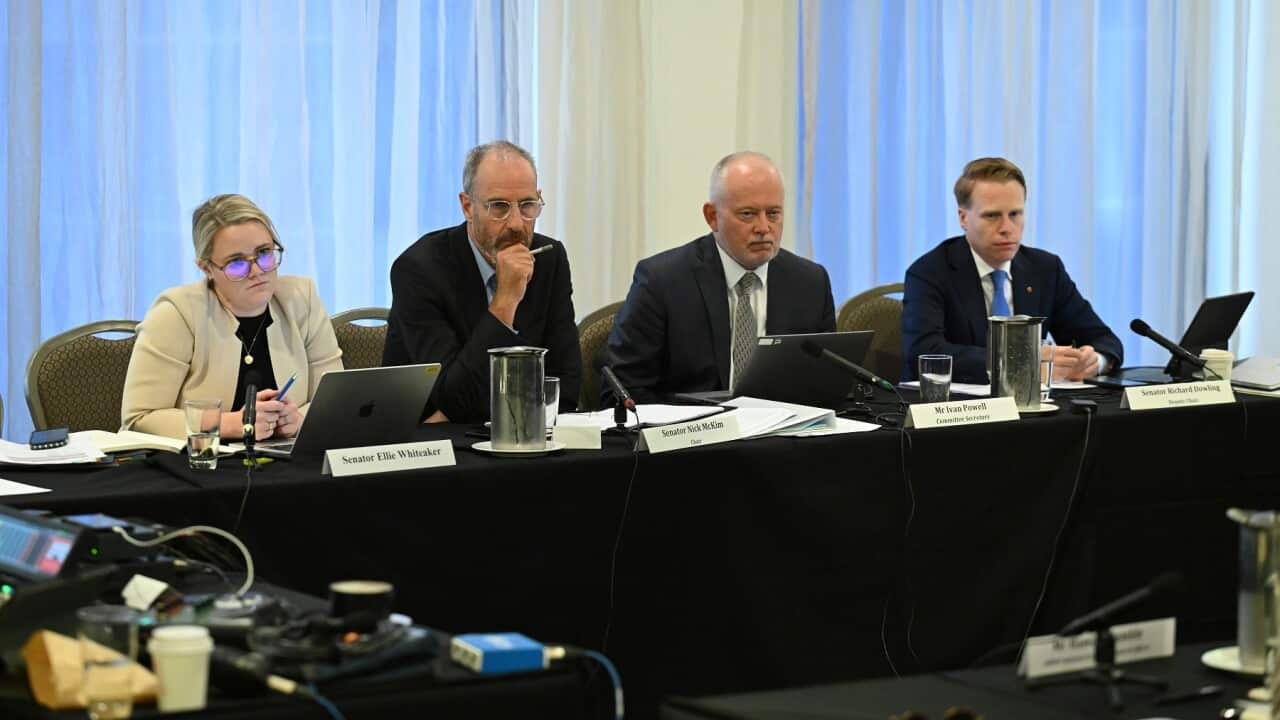Listen to Australian and world news, and follow trending topics with SBS News Podcasts.
TRANSCRIPT
Sunday's parliamentary elections in Syria saw around 6,000 members of regional electoral colleges choose candidates from pre-approved lists, part of a process to produce nearly two-thirds of the new 210-seat body.
President Ahmad al-Sharaa will later select the remaining third of the government.
The elections have been called undemocratic, while some Syrians in Australia say they are more worried about people's safety than the fairness of voting.
Fouad Berzghal is a Syrian who has made his home in Australia.
He left the country 14 years ago to avoid joining the military and going to war.
After spending some time in Lebanon, he made it to Melbourne, supported by the Community Refugee Integration and Settlement Pilot.
When he thinks about his family back in Syria, he told SBS News he feels concerned for their safety.
“I'm always talking to them. Yeah, we have conversation every two, three days I call them. But yeah, it's scary there. Yeah, it's hard. There is no electricity, no water even sometimes. My brother used to have to work. Now he doesn't have anything to do. I'm helping him and my family to stay alive there. So it's bad. Yeah.”
He holds little hope for a safer Syria for his family.
“Yeah, of course. I'm worried for them. The background. Everyone knows the background of this government, the new government, I mean. So yeah, of course I'm worried about them. Because it's a terrorist government. Because they live in Latakia, you know what I mean? Just because Bashar al-Assad was from Latakia”
So why have the elections been criticised?
The committee that organised the election has acknowledged significant shortcomings, after results showed only 13 per cent of the seats contested were won by female and minority candidates.
Observers said just six women and 10 members of religious and ethnic minorities were among the 119 people elected to the new People's Assembly on Sunday.
Kinda alSamara is a lecturer in Arabic Studies from the University of Queensland, and an affiliate of Monash University's Global Peace and Security Centre:
“The real issue is in the election itself, just let's be honest because if you are going to think about it from different perspective, all countries has the same circumstances coming out of conflicts, war, et cetera. So they will have weak, let's call it if they want to call it, sometimes they call it parliament or whatever they want to name it, okay, it's normal, but by calling it an election, the government is trying to appeal like a permanent legitimate government.”
She says the process of pre-approving and hand-selecting candidates is not a "truly democratic" process, and many Syrians were excluded.
“Ordinary Syrians are not voting or they didn't vote and of one third of parliament is appointed by the president and the other two thirds are chosen indirectly, so not through real elections. So calling this democratic process is misleading.”
Citing security and political reasons, authorities postponed the vote in areas outside government control, including Kurdish-held parts of Syria's north and northeast, as well as the province of Sweida, held by the Druze minority.
The postponements left 21 seats empty.
Dr AlSamara says that Syrians want to have a democratic future, but the country is not ready for one yet.
“You know, like half of the population is displaced or abroad. There is no proper census or many people don't have IDs. There are no active political parties, no technical or social base for elections. So let's be realistic. So it's simply not the right time to hold meaningful democratic vote, and even Syrians in their entire lives have never experienced real elections and open, they have elections but wasn't serious or true real one like open, fair and democratic one. But yes, Syrians deserve democracy.”
While the government may not be considered wholly democratic, it still has a vital role in Syria.
Dr AlSamara says the government's role is to be transitional and facilitate a return to democracy for Syria.
She says it's designed to run for five years and cannot change the system of government or sign any major agreements.
“It's the job of the first transitional council to manage this phase, pass basic laws and prepare for the next permanent constitution and real elections.”
But she has concerns on whether the newly elected government can achieve democratic reform, or whether it will stay in power under illegitimate pretences.
"Fake elections, as I said, are more dangerous than open appointments because they give false legitimacy to a temporary authority and make it look permanent. "
She says after 14 years of conflict and killing, Syrians really deserve democracy.
Ayat alHakim, a Syrian living in Australia,says her relatives back in Syria do not feel represented by the government.
“I don't think the government right now represents every Syrian and Syria. No, I don't think they represent what actually the people want and need. “
She says giving people jobs because of their religion is not enough to ensure good government.
“If you want to just take this person and give them this opportunity or this place to lead or to do something to a whole country, you need to make sure that they know what they're doing. Not just because they're religion or where are they from, or if they are from the biggest amount of religion or background in this country. They need to know what they're doing. We need to look at their education, their work, what they have done before to the country, how did they serve the country before?”
She has heard stories of unrest and turmoil in the wake of al-Sharaa's rise to power, and says violence has become worse in many parts of Syria.
“ I don't feel hopeful at all. I'm so sorry to say that. I would say my sister is in danger, my other sibling is in danger and as long as they're still in danger, I can't see anything helpfully there for me. I can't see safety for them. You know what I mean? And that's the minimum thing that a human being needs to stay alive. It's safety in the place that you stay in. If it's your country and you don't find your safety, that's a problem.”














